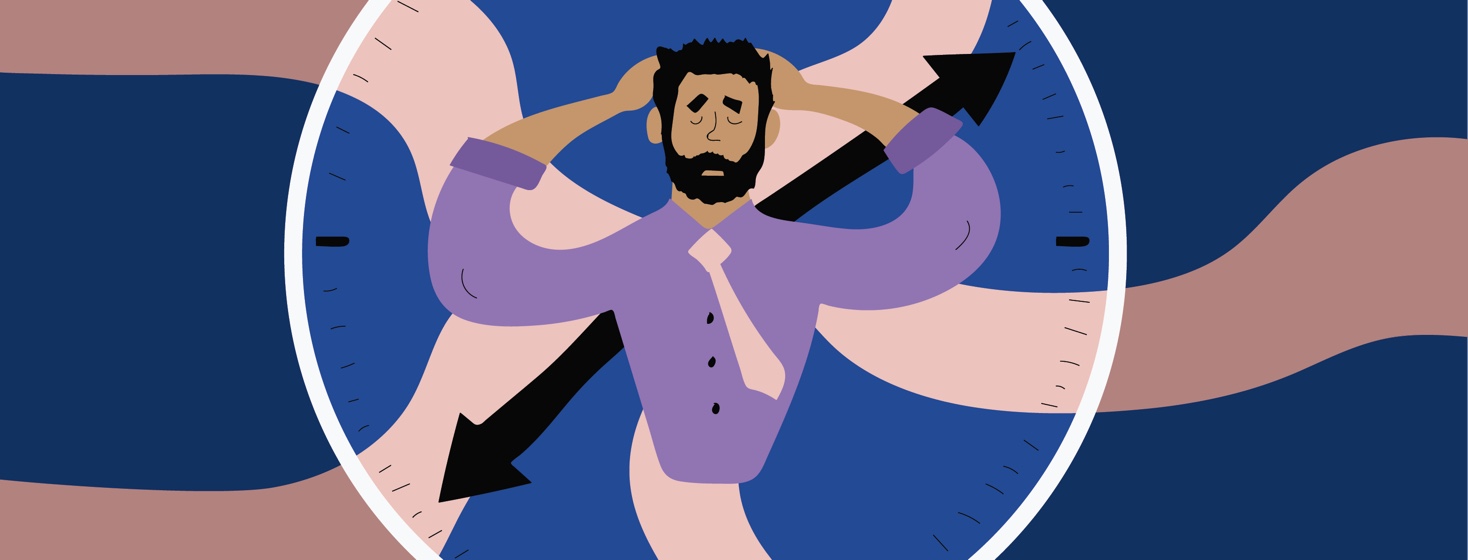It’s Okay to Feel Exhausted: Caregiver Fatigue and Burnout
When we think about fatigue and cancer, we often think about the physical and emotional toll cancer takes on the person diagnosed. Yet fatigue can also drastically affect the day-to-day life of caregivers. Compassion fatigue, also referred to as secondary traumatic stress disorder, can occur when caregivers focus too heavily on caring for another without also practicing healthy self-care. Simply put, caring too much can hurt and lead to caregiver burnout in the long term.
What does compassion fatigue look like?
While it is normal to feel worried or depressed following the shocking news of a cancer diagnosis, persistent or lingering feelings may be a sign of compassion fatigue. Signs of compassion fatigue can surface as ordinary symptoms of stress and include:2
- Feeling burdened by your loved one’s suffering
- Blaming others for your loved one’s suffering
- Isolating yourself
- Loss of pleasure in life
- Difficulty concentrating
- Insomnia
- Physical and mental fatigue
- Bottling up your emotions
- Increased nightmares
- Feelings of hopelessness or powerlessness
- Poor self-care
- Denial
Counter burnout with empowerment
The demands of caregiving can be overwhelming. There are ways to balance caring for your loved one with your own self-care. A major cause of caregiver burnout is feeling powerless to change difficult circumstances and it’s easy to slip into this way of thinking. If you feel trapped in a role you never expected to fall into or helpless to improve your or your loved one’s life, try to remember that you are not powerless when it comes to how you approach your situation. Counter burnout and compassion fatigue with empowerment.
Practice acceptance.
Asking “why?” is normal when faced with the unfairness of cancer. It’s not easy, but remember it’s not helpful to focus on things that are unchangeable and lack clear answers. Use the positive motivations behind your decision to become a caregiver as an anchor. Perhaps it’s to support your partner “in sickness and in health” or to care for a parent the way they cared for you as a child.
Focus on what you can control.
Cancer may force us to relinquish control of our life. Rather than worrying about what you can’t control, focus on how you choose to respond to situations. Know your limits and be honest with yourself when you start feeling overwhelmed. Don’t hesitate to ask for help or support when you need it.
Don’t let caregiving take over your life.
With all the demands that come with being a caregiver, it’s easy for your world to narrow. One way to practice positive self-care is to embrace other identities beyond “caregiver”. Be sure to routinely invest time in hobbies, activities, and other relationships that give you personal meaning and joy.
Look for the silver lining.
In all the trials and tribulations cancer has put you through, you have weathered the storm. Think of how you have changed for the positive. Perhaps being a caregiver has helped you find new strengths or brought you closer to loved ones. Don’t underestimate the value in enjoying those small moments and helping your loved one feel safe, comfortable, and loved.
Take advantage of respite care services.
Respite care can offer a temporary break for caregivers in any setting. While this option may not be for everyone, it can be beneficial to those caregivers whose loved ones require more involved care.3,4
Practicing healthy self-care
No matter how busy the day ahead of you looks, it’s important to practice healthy self-care. It may feel difficult or even selfish to prioritize yourself while also caring for your loved one’s health. Self-care is about taking care of yourself so that you can be the best and most healthy version of yourself. Self-care looks different for everyone, but a few universal self-care practices include:1
- Staying active and establishing an exercise routine
- Eating healthy
- Practicing self-management -- it’s okay to say no
- Finding a support system of people who build you up, listen, and care
- Organizing your life so you can be proactive rather than reactive
- Carving out dedicated you time into your schedule
- Saving your energy for worthy causes -- choose your battles
It’s okay to feel this way
The biggest reminder to tell yourself if you’re feeling exhausted, helpless, or burnt out is that it’s okay to feel this way. Continuously caring for another person is no easy task and experiencing these thoughts and feelings is understandable. Reach out to friends, family, other caregivers, or a professional for support. You don’t have to tackle the demands of caregiving alone.
Resources for support
- Family Caregiver Alliance provides resources to help locate support services across the country.
- National Respite Network offers respite care service information by state.
- Cancer Support Community: Caregivers is a place where caregivers can gather information and resources to best support their loved one.

Join the conversation